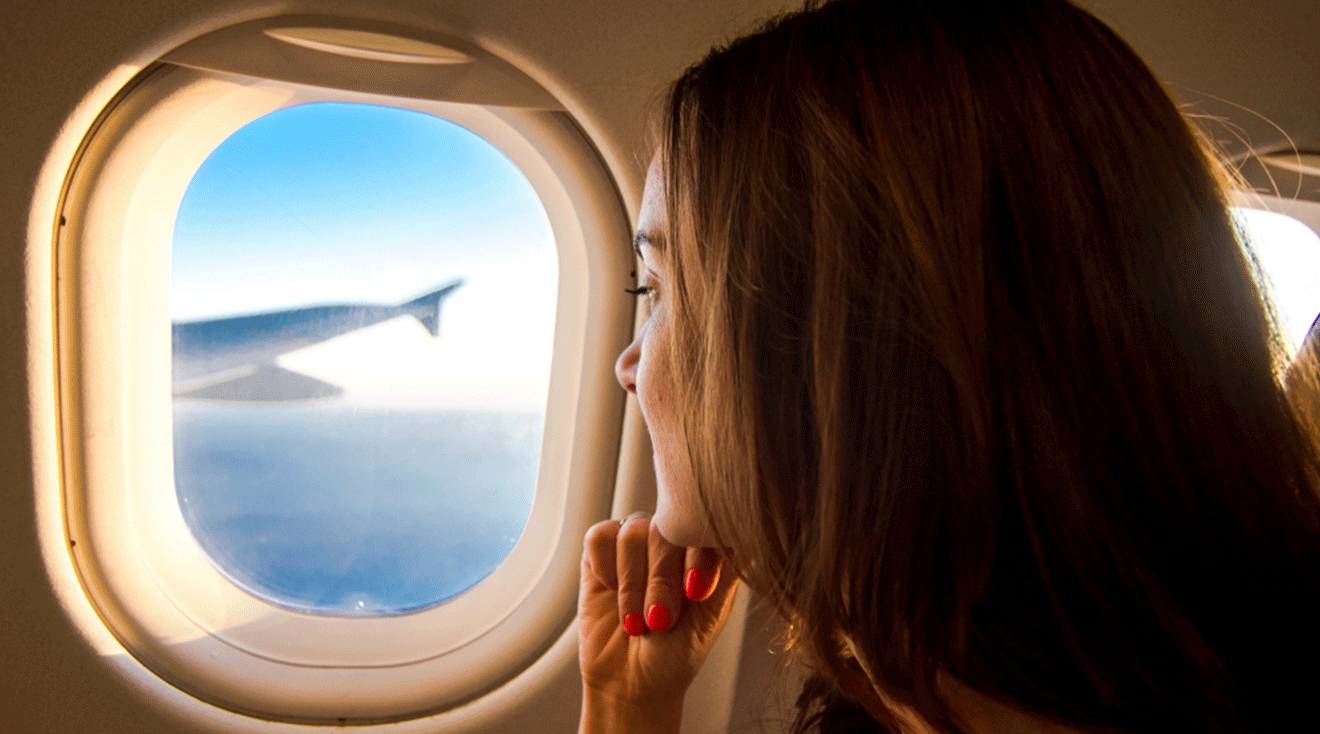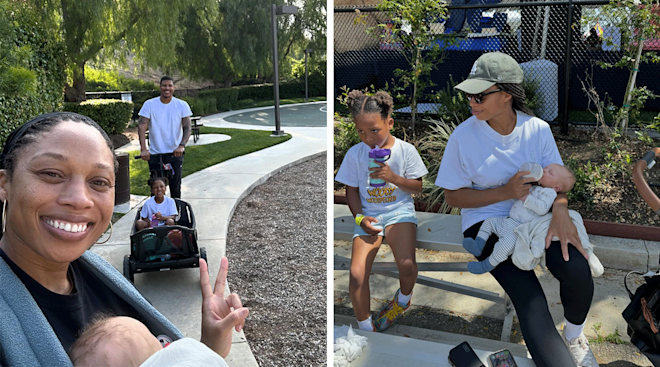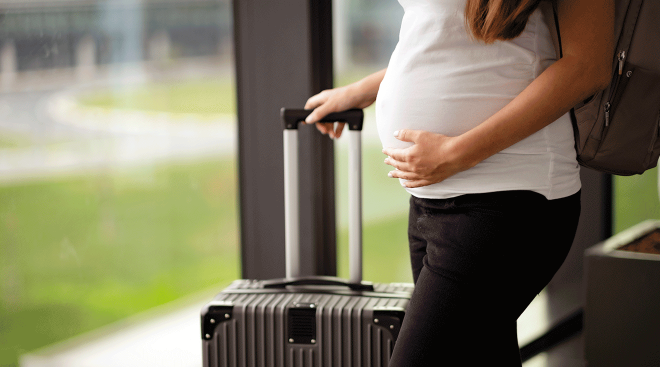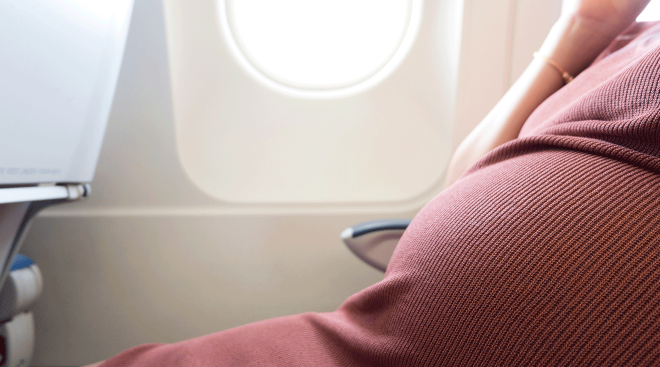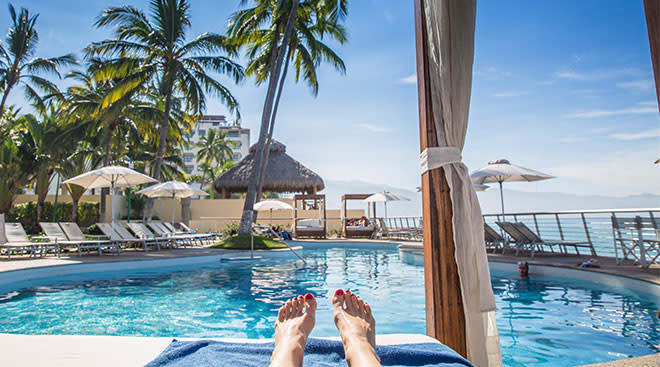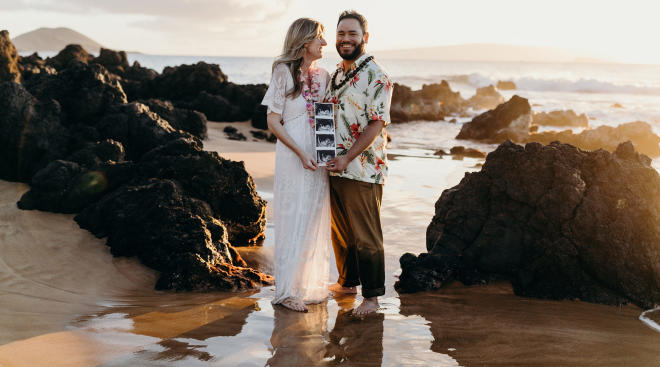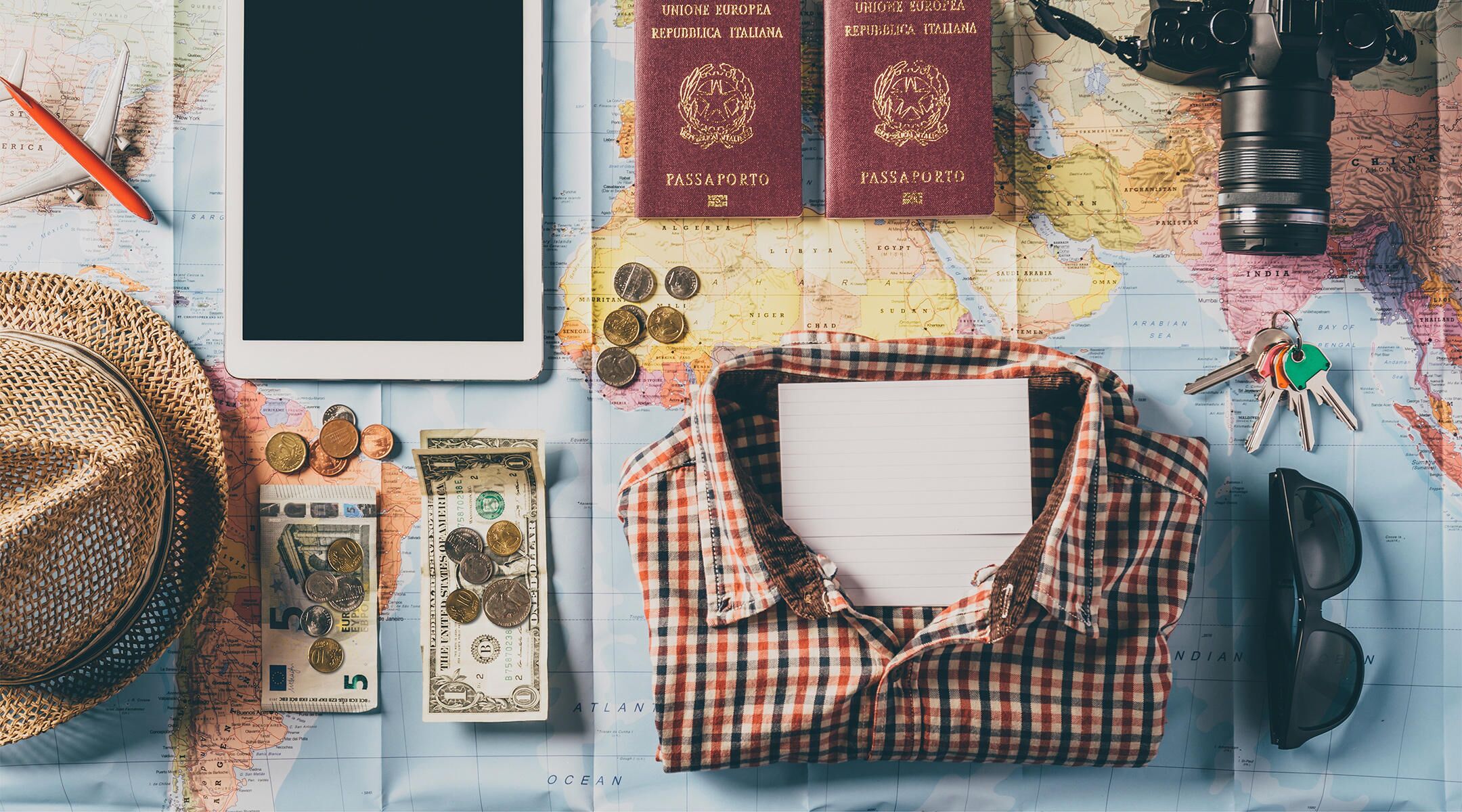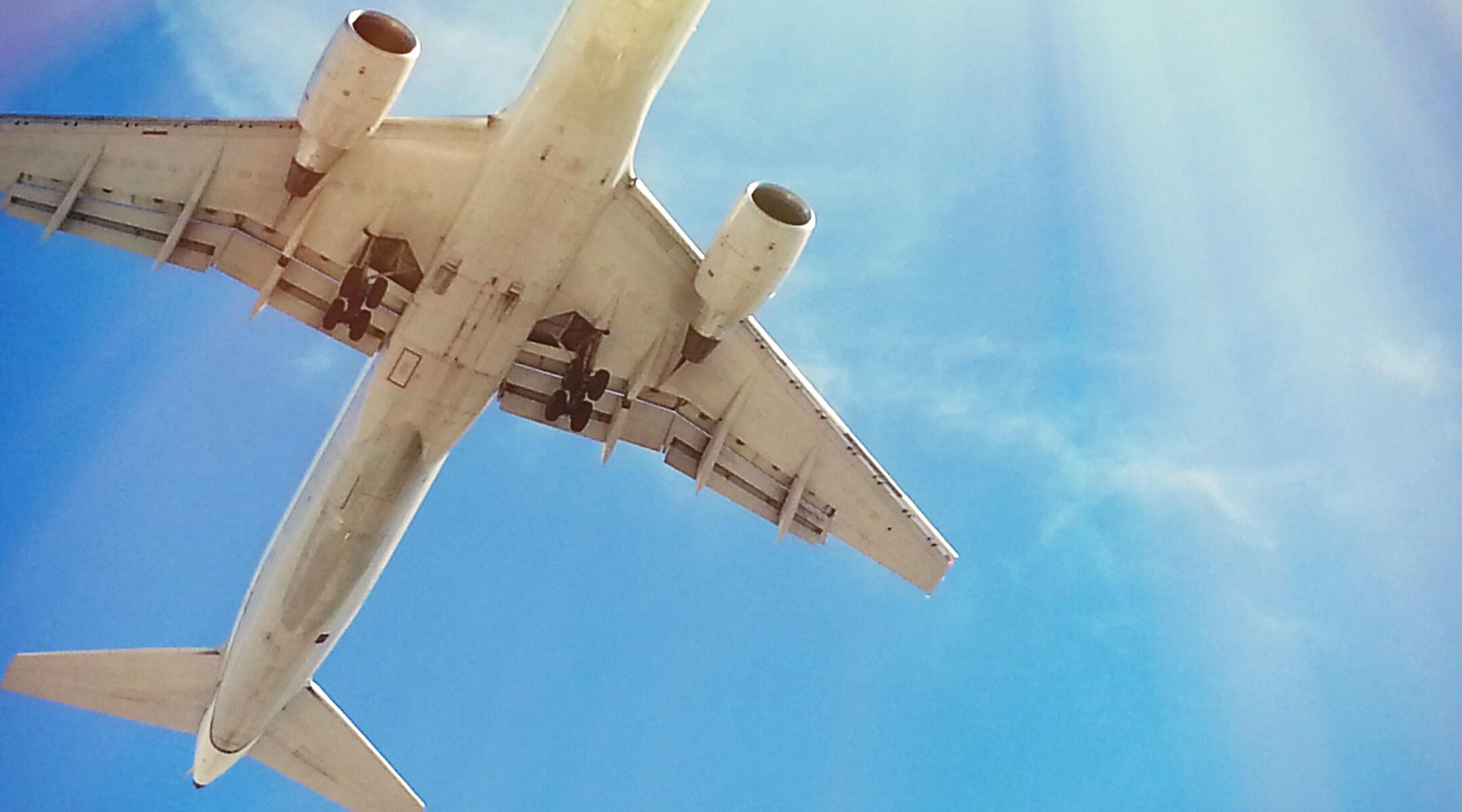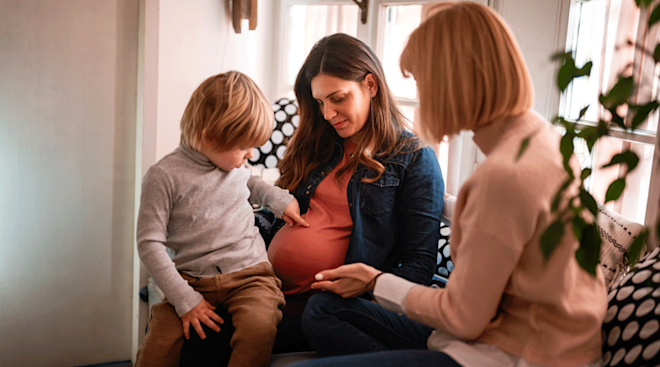Postpartum Travel: When Can I Fly, Drive or Go Places?
There are several reasons why you might be thinking about traveling soon after birth. Maybe baby was born around the holidays and you’re hoping to keep up with family traditions. Or perhaps you’re simply excited to show baby all the places you love. Whatever the reason, if you’re looking to travel after birth, Sherry Ross, MD, an ob-gyn and women’s health expert, says it may be possible—as long as you take some precautions. “The distance [you’re] traveling, ultimate destination and time spent sitting… should all be considered, even if you’re feeling physically, mentally and emotionally ready,” she says. Whether you’re thinking about hopping on a flight or taking a road trip in the postpartum period, there are some things to know and think through. Read on to learn more and get tips for experts and real moms.
Postpartum travel is safe as long as you’ve given your body ample time to recover from childbirth and have received the green light from your provider, Ross says. This is because traveling requires some heavy lifting from your body—literally. For example, you may have to carry your luggage, which may strain your body if it’s not yet recovered from birth. “For at least six weeks, avoid lifting anything heavier than your baby (this excludes lifting the baby in a car seat),” says Stephanie White, RN, a nurse care manager at WIN. You’ll also want to minimize climbing the stairs and taking long walks until you’re healed, too, as these activities may increase postpartum bleeding. Additionally, be aware that all the sitting you’ll do during travel can make soreness worse if your body is still recovering.
That’s not to say you can’t safely travel postpartum—it just depends on how quickly your body’s able to heal and recover from birth. But even if you have the go ahead from your provider, there are other things to consider, as the postpartum period can be a stressful time. “Managing pain, fatigue and your newborn’s unpredictable feeding and sleep patterns can be overwhelming—especially if this is your first child,” White says. If you’re already struggling, you may want to adjust to this new phase of life from the comfort of your own home and routine.
I'm seven weeks postpartum, after an unplanned C-section. I still can't lift much, but other than that I’d be fine physically…However, managing feeding my little one (nursing and pumping) would be daunting. I went on a one night trip to visit my family in Portland last weekend, and it was totally exhausting and postpartum bleeding returned. I don't regret making the trip, but I’m not convinced it was a good idea.
Unfortunately, there’s no definitive answer here. Like most other things related to pregnancy and postpartum, this will depend on your individual circumstances. According to Ross, if you’re flying out of necessity, you theoretically could do so two weeks after a vaginal birth and four weeks after a C-section. However, you’d need your healthcare provider’s approval to ensure it wouldn’t hinder any postpartum healing. “Some women are at higher risk of developing blood clots, and the risk increases with prolonged inactivity during a flight,” explains White. Some other considerations for flying postpartum? How long the flight is, your personal medical history, access to medical care at your destination and airline restrictions.
For elective domestic flights, Ross says it’s best to wait at least six weeks after birth to allow enough time for recovery, regardless of whether you delivered vaginally or via C-section. Women who experienced pregnancy or delivery complications may need to wait longer than six weeks. For elective international travel, Ross says you’ll also want to hold off at least six weeks for uncomplicated births, but White recommends waiting around three months, as you’ll want to factor in any immunizations baby will need if they’re coming with you (more on that below).
Ross suggests waiting two to four weeks postpartum before traveling by car—but this timeframe may look different if you’re looking to drive. White notes you usually can’t drive before six weeks after a C-section. “A good rule of thumb: If you can lift your foot and simulate slamming on the brakes without pain, driving may be safe,” White says. “However, always get approval from your healthcare provider, as other factors—such as high blood pressure—can impact your ability to drive safely.”
Both Ross and White note that if you’re looking to travel after birth, a road trip may be the easiest, as there are less restrictions and you can control your environment. Car travel also offers less germ exposure for you and baby and allows you to create your own schedule to stop as often as needed.
Physically, I was fine to go somewhere at about two weeks postpartum, despite a horrible tear. That said, I couldn't go two hours away for other reasons. My hormones were insane, we were having breastfeeding issues and my son was eating all the time at that age! I wouldn't have really been the most social person. It depends so much on each individual's situation.
How soon you may be able to travel and how soon baby can travel may look different. After all, it takes a while for babies to build up their immune system and to be eligible for vaccinations. Due to this, White recommends avoiding non-essential travel with a newborn, especially when using public transportation methods like planes and trains. “Newborns have incredibly fragile immune systems. Exposure to germs on public transport or in crowded airports significantly increases the risk of infection,” she explains. “Even a minor illness in a newborn can require hospitalization for observation, which can be stressful for both baby and parents.”
What’s more, while baby will start to get some protection from vaccines around 2 months of age, they won’t have full immunity until they’re around 6 months old. This may leave them “vulnerable to serious illnesses like whooping cough or influenza,” White notes. As always, check in with your pediatrician on what they recommend. “Prioritizing baby’s health and wellbeing is paramount. If possible, consider postponing non-essential travel until baby is older and their immune system is stronger,” she adds.
I'd recommend travel insurance—or buy a ticket you can change with little to no fees incurred. That way, if there are unforeseen complications, you can adjust your travel plans accordingly. I had no complications flying cross country seven weeks after my C-section, but I definitely was wiped after. I had help from my mom so I didn't have to lift anything, and I had my son in a Moby the whole time.
If you do need to travel after birth, there are a few ways to make the experience easier. Below, Ross and White offer their top tips:
- Pack and wear comfortable clothes: This is a must any time you travel, but especially with postpartum travel, Ross notes.
- Stay hydrated: It’s easy to get dehydrated while traveling, whether you’re flying or driving. White emphasizes the importance of drinking sufficient water—especially if you’re pumping or breastfeeding.
- Pack the essentials: According to Ross, this includes a postpartum medical bag with pads, pain meds, anti-inflammatory medication, breastfeeding bras and nipple pads (if nursing or pumping) and emergency contact information. For baby it includes diapers, wipes, a changing mat, changes of clothes, feeding supplies, pacifiers and more. Plus, you’ll want to think through what gear you’ll need, such as a stroller, car seat or baby carrier.
- Move around as often as you can: To minimize the risk of blood clots, prioritize moving around when you can. If you’re flying, get up and walk around the cabin when it’s safe to do so. If you’re driving, stop and get out to walk every couple of hours, advises White. Wearing compression socks can also help minimize the risk and help with circulation.
- Bring a travel partner: “If travel is necessary, consider bringing a companion who knows you well and can offer hands-on support,” White says. “Their assistance can make the experience more manageable.” This includes things like helping you carry any luggage, managing baby’s gear and simply holding baby.
- Research medical access at your destination: You’ll want to have a good idea of where the nearest emergency room or urgent care locations are at your destination, Ross notes, just in case you or baby wind up needing medical support.
- Know how to use your baby gear: It can take some practice to get the hang of folding baby’s stroller or properly securing their car seat. But it’s important to feel comfortable with the gear you choose to bring ahead of time—because the last thing you want is to be struggling with folding baby’s stroller while gate checking it or not knowing if baby’s car seat is securely installed, White says.
- Create a realistic and adaptable schedule: Whether you’re traveling with baby or by yourself, it’s important to realize that you may not be able to go at your usual pace. Slow down and create a more realistic schedule for you or for baby, Ross says. “The more prepared you are prior to leaving on the trip, the better you will feel emotionally and physically.”
Frequently Asked Questions
Will traveling after birth disrupt my postpartum recovery?
Traveling and postpartum recovery can both put stress on the body. While traveling after birth won’t necessarily disrupt your postpartum recovery if you’ve waited enough time and have the green light from your provider, it may slow it down or add stress to an already frenzied time. “During the postpartum recovery period, a disrupted routine can create emotional and physical chaos,” Ross says. “Mental and physical fatigue and disrupted sleep are normal during the postpartum period, even in the normalcy of your home. Travel (in a car or airplane), staying in unfamiliar lodgings, eating out and sleeping in an unfamiliar bed can create more stress, anxiety and fatigue.” If you do travel postpartum, know that you may need to plan ahead more than usual and accept that there may be disruptions.
Do babies need identification to travel after birth?
According to White, newborns usually don’t need a separate form of identification for domestic travel within the US. “To be safe, we recommend bringing baby’s birth certificate, in case your airline requires proof of age—especially if they’re traveling as a lap infant,” she says. For international travel, however, any US citizen—including a newborn—will need a valid passport.
What is the safest way to travel after birth?
Both experts say car travel is the safest way to travel after birth, as it lessens baby’s exposure to germs and crowds, as well as gives you flexibility and control over your schedule and environment. You’re able to stop as often as you need to and move at your own pace.
How long does the postpartum period last?
According to the American College of Obstetricians and Gynecologists (ACOG), the postpartum period lasts around 12 weeks after birth. This time frame is also called “the fourth trimester.”
When can newborns go outside after birth?
While newborns can go outside right after birth, you’ll want to consider a few factors, including how hot or cold it is outside and how crowded it might be. Until your little one has some immunity from their vaccinations, it’s a good idea to keep them away from crowded places.
The first six weeks are the most challenging hormonally, physically and emotionally…Our bodies are amazing during the healing process. If you don’t overdo it, be patient and allow the body to heal, you’ll feel more like yourself by six weeks postpartum. Realistically, it takes at least nine months to get your hormones and physical body back on track to how you were feeling before you got pregnant. Be patient and don’t push yourself until you’re truly ready. The biggest mistake women make is not following the rules of recovery.
While you can travel after birth, how soon really depends on your unique situation. You’ll also want to chat with your healthcare provider to get their input and—in some circumstances—approval. It’s important to remember that any form of travel may stress your body and mind. The postpartum period is about prioritizing postpartum recovery and adjusting to this new chapter of life with baby, so plan thoughtfully and travel wisely.
Please note: The Bump and the materials and information it contains are not intended to, and do not constitute, medical or other health advice or diagnosis and should not be used as such. You should always consult with a qualified physician or health professional about your specific circumstances.
Plus, more from The Bump:
Sherry Ross, MD, is an ob-gyn, women’s sexual health expert and author of She-ology: The Definitive Guide to Women’s Intimate Health. Period. and She-ology, The She-quel. She earned her medical degree from New York Medical College.
Stephanie White, RN, CLC, CCE, is a nurse care advocate at WIN. She has over 34 years of experience and specializes in maternal newborn and prenatal patient education. She earned her registered nursing degree from Harding University and her master’s degree in nursing education from Aquinas College.
American College of Obstetricians and Gynecologists, What to Expect at a Postpartum Checkup—And Why the Visit Matters, February 2024
Real Parent Perspectives
Learn how we ensure the accuracy of our content through our editorial and medical review process.
Navigate forward to interact with the calendar and select a date. Press the question mark key to get the keyboard shortcuts for changing dates.

































